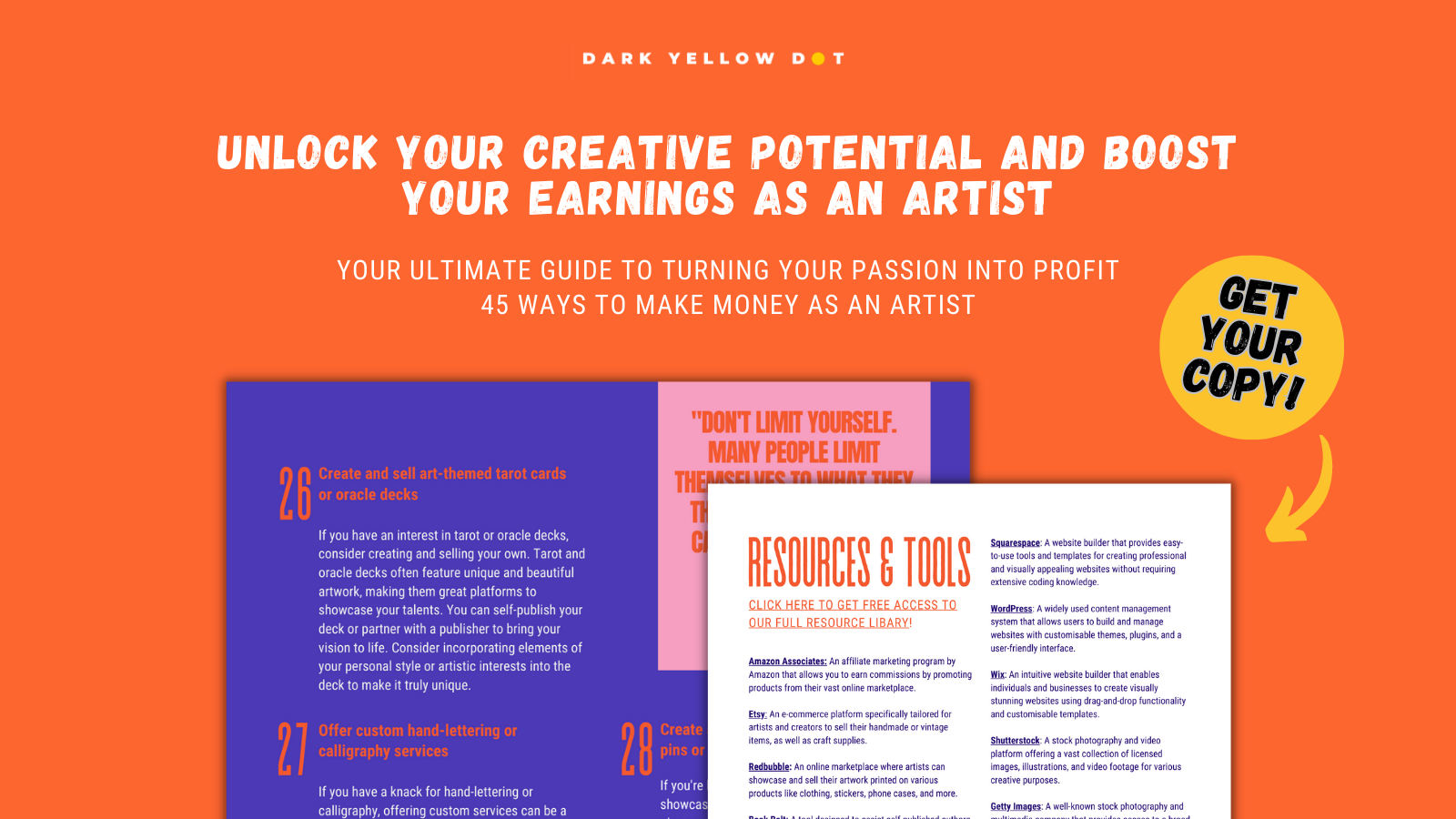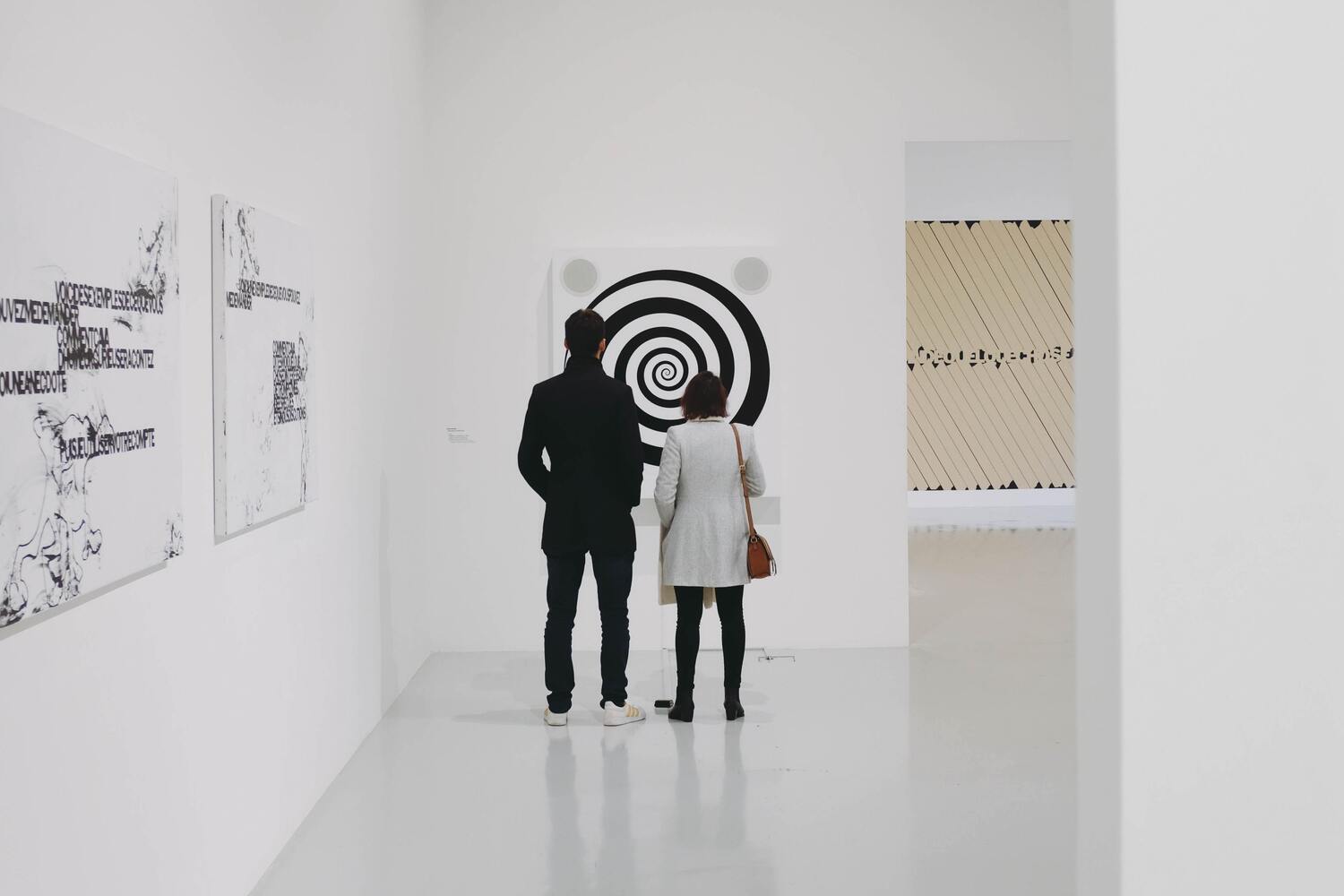
3 Achievable Budgeting Tips for Artists With Irregular Income
Useful Budgeting Advice for Freelance Creatives in 2024
Heads up: This post may contain affiliate links, Learn more.
While the starving artist stereotype isn’t always true or desirable, the reality is that freelance artists often have inconsistent income. The average salary for freelance artists in the UK is between £23,000 and £39,000 as of 2024. Freelancers report an additional cash compensation of £1,736 on average. These numbers are likely to be retrieved from a wide range of salaries and even then, the pay isn’t always the same month to month. It doesn’t help that there are a lack of budgeting tips for artists out there.
Unless you do consistent work for a company or two, your paychecks will inevitably be varied. Different clients, projects, and market fluctuations all affect how much you are making at a given point.
Whether you’re a photographer, painter or any professional in between, you are likely well-acquainted with the delicate balance of commissions, gigs, and other artistic ventures. Luckily, you can take control of your finances and budget responsibly with some simple budgeting tips for artists.
Unique Financial Challenges Faced by Freelancers
It’s certainly possible to make money as an artist nowadays. You have options like selling your art in-person and online through original pieces and art prints. You can attend art fairs, display your art in galleries or host your own shows.
You can even have a website tailored to your unique offerings, like commissions on a project-by-project basis. However, it’s a lot of work to keep up with all of these avenues as well as determine pricing for each.
What’s more, you’re dealing with fluctuating income. As a freelance artist, you’ll encounter distinct financial challenges like:
– Fluctuations based on demand, season, and brand recognition;
– Balancing several streams of revenue and having to wear all the hats in each, like running your own e-commerce business and also handling marketing for in-person events;
– Earning on an individual project basis, allowing for creative freedom but also operating under time constraints and possibly not offering similar follow-up projects;
– Covering all business-related costs, like your own healthcare, materials, equipment, marketing, rental spaces, and continued education;
– Paying self-employment taxes, which can be complex and expensive.
This financial juggling act can affect your productivity, profits, and stability — but it can also affect your personal life and mental wellness. Learn how to keep your irregular income by utilising budgeting tips for artists in check and prepare for a sustainable career in freelancing for the foreseeable future.
Practical Budgeting Tips For Artists
1. Cultivate Good Financial Habits
Chronically dealing with financial issues can impact your mental health negatively. Whether you are struggling to pay bills, afford basic needs, or secure your financial future, this can cause a significant amount of stress, anxiety, and even depression in your life.
Emotions are beneficial for creating deep artwork, but financial anxieties aren’t conducive to productivity. If you’re bogged down with stress about money, you will have more trouble being creative and making good business decisions.
Instead, practice good financial habits. It’s never too late to start, even if you’re behind on taxes or bills. Use the following steps to improve your financial moves and ease your mind:
Create a financial plan, including expenses, income, and a way to track them consistently;
– Set realistic goals, like using the “snowball method” to pay off your smallest debt first or striving to make a certain amount of money every quarter;
– Prioritise flexibility, accounting for “down” periods and giving yourself room in your budget to spend extra on travel, materials, and personal development;
– Manage everyday finances, such as groceries and rent;
– Save for the future, especially taking into consideration times when your art may not be bringing in as much as it has in the past.
You don’t need to implement these habits by yourself. In fact, their are plenty of money apps out there that can help establish positive financial habits into your day to day life.

The Best Budgeting Apps in 2024
This popular money budgeting app helps you take control of your finances by supporting you to spend less and save more.
Plum used automated features and smart technology to help you reach your money goals, perfect for busy artists on the go.
This option ditches the old pen and paper method of budgeting and keeps all your data in one place, even linking with friends and family.
In a time where our money needs to stretch further, Snoop Finance allows you to take a closer look at your spending habits; finding ways to cut them down.
Keeping a keen eye on what is coming in and going out of your bank account can give you a clearer picture over time of how you can adjust. Use these budget apps or any other form of budget tracker, or you can even reach out to a financial professional for help.
Budgeting Rules For Beginners
If you’re just getting started, it may be useful to apply some basic rules to money management. A common budgeting strategy is the 50:30:20 method. Obviously, everyone’s circumstances differ – but this is a simple ratio to start with.
With this technique, you should be looking to divide your income on the following:
– 50% goes towards your needs, covering costs such as your housing, utility bills, food and transport.
– 30% should be set aside for your wants, including eating out, shopping, entertainment and leisure related travel.
– 20% is then accounted for your savings, and this can be collected via retirement funds, saving accounts and investments.

2. Understand Current Market Trends and Societal Financial Health
Preparing for the future as a freelance artist means predicting consumer trends as accurately as possible. You have to have your finger on the pulse of how your target audience is spending their money — and how you should spend yours. The financial state of the UK in 2024, for example, is critical. Over 47,000 UK businesses are on the brink of closing due to financial hardships, inflation and weakened consumer confidence.
This isn’t to discourage you from pursuing your artistic endeavours. On the contrary, you should continue to dive deeper into your target audience and their spending habits. Find out what resonates with them and the price point at which you can set your products. This will prevent you from cutting yourself short or overpricing to the point of losing sales. Compassion for current financial distress can lead to more loyal customers and better profits over time.
3. Develop Creative Strategies for Managing Cash Flow
Even though your income is unpredictable to a degree, you can estimate how much you will make based on historical data. The longer you track your income, the better — and this will help facilitate your tax filing process. Gaining insights into your spending, saving, and earning behaviour can help you smooth out income fluctuations.
Tailor Your Budget To Your Needs and Past Financial Behaviour
It’s more important for freelancers with varying incomes to track and analyse finances frequently. Regularly review your budget, track actual income, expenses and adjust as needed — as often as needed. When new projects come up, make sure to set aside time to work those into your financial plan. If you know certain seasons are slower for you, plan to supplement your income or cut back during those months.
Give Yourself a Buffer
It’s tempting to use all of your earned income to fund your business and lifestyle. However, it will be better in the long run if you set some money aside. This can be for a rainy day, retirement and self-employment taxes. Budget about 15 to 20% of your monthly income to save for taxes. If you want even more cushioning, try to take on higher-paying projects so you can have something to lean on in emergencies or unexpected circumstances.
Diversify Streams of Income
Even if you are selling your art on every platform available, there is still room to make money in different avenues. Look into active and passive income ideas for artists, especially if you are having trouble meeting your savings and budgeting goals. For example, consider:
– Teaching classes in your niche.
– Working with affiliates or sponsors.
– Providing useful ebooks to your online audience.
– Leasing art to restaurants, hotels, and shops.
– Investing in real estate or stocks.
Just be sure to be realistic about how much time you can put toward another endeavour. Investments and stocks can also be risky, so make sure you are well-equipped to become a successful investor and artist. If you use your head and plan for the future, you can make interest from investments and secure a nice nest egg to keep comfortable in the future. Also, if one stream of revenue happens to tank, you have your other channels to fall back on.
Financially Responsible Freelancing for the Future
Freelance artists have flexibility — in creativity, workspace, and finances. If you’re mindful of how you adapt your finances to fit a fluctuating lifestyle, you can responsibly set your freelancing business up for success. Managing your money can be hard; but these straightforward budgeting tips for artists should help elevate some of your anixeties.
DO YOU HAVE YOUR OWN BUDGETING TIPS FOR ARTISTS? LET US KNOW IN THE COMMENTS BELOW.
Don’t forget you can always share your art with us, just use #darkyellowdot for a chance to be featured on our Instagram.
Thank you for reading and if you found this article useful, share it around, that makes us happy. To receive more posts like this and updates, join our mailing list, everyone is welcome.
NEED MORE ADVICE?
ARTICLES TO HELP:
7 Patreon Ideas For Artists Looking To Earn Extra Money In 2024
Selling Digital Art: Easy Ways For Artists To Start Making Money
The Complete Guide: How To Start An Etsy Business In 2024
Learn How To Budget! Personal Budgeting Made Easy In 16 Minutes
From Passion To Project: Turn Your Hobby Into Your Full-Time Career

Featured Image: Pexels








